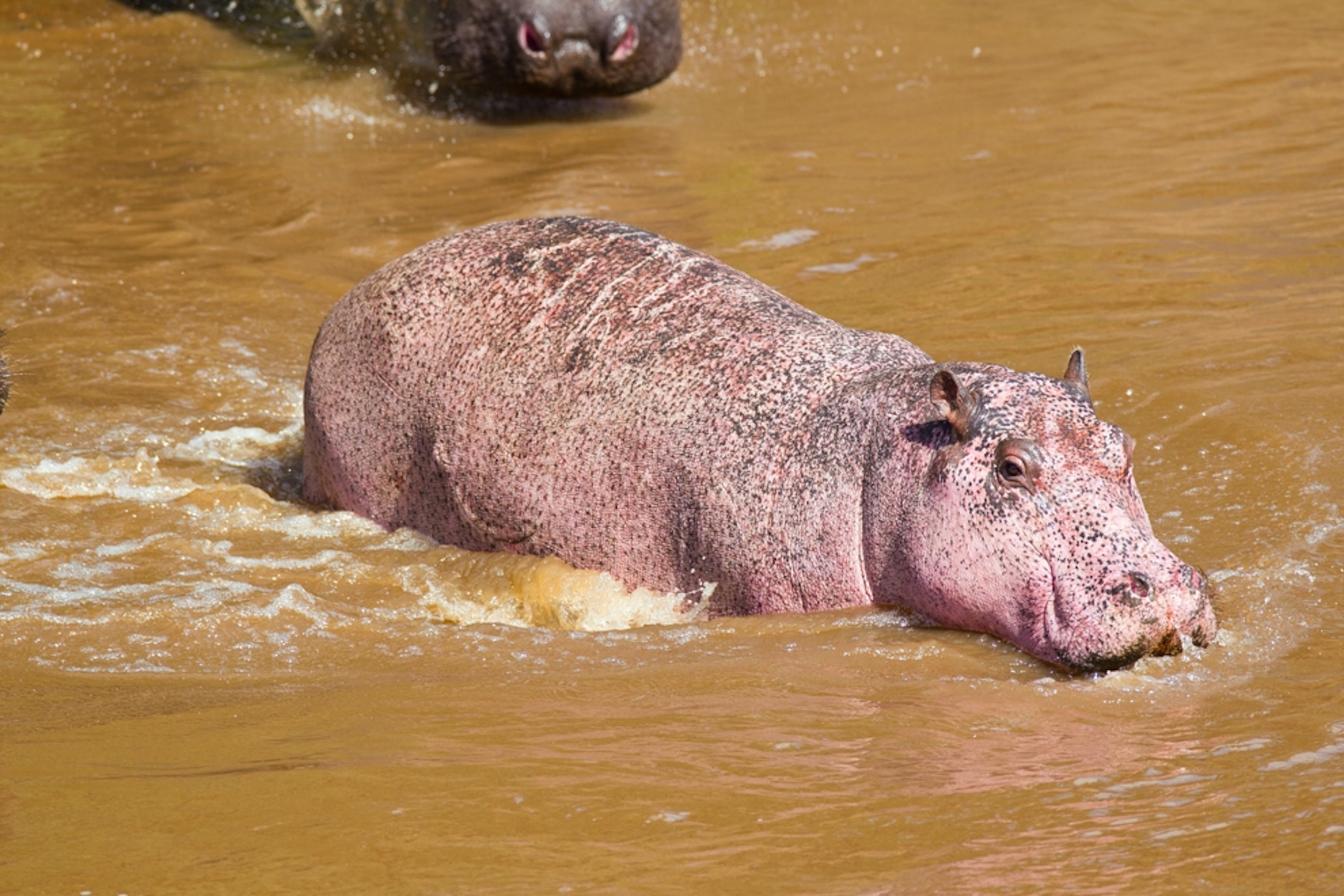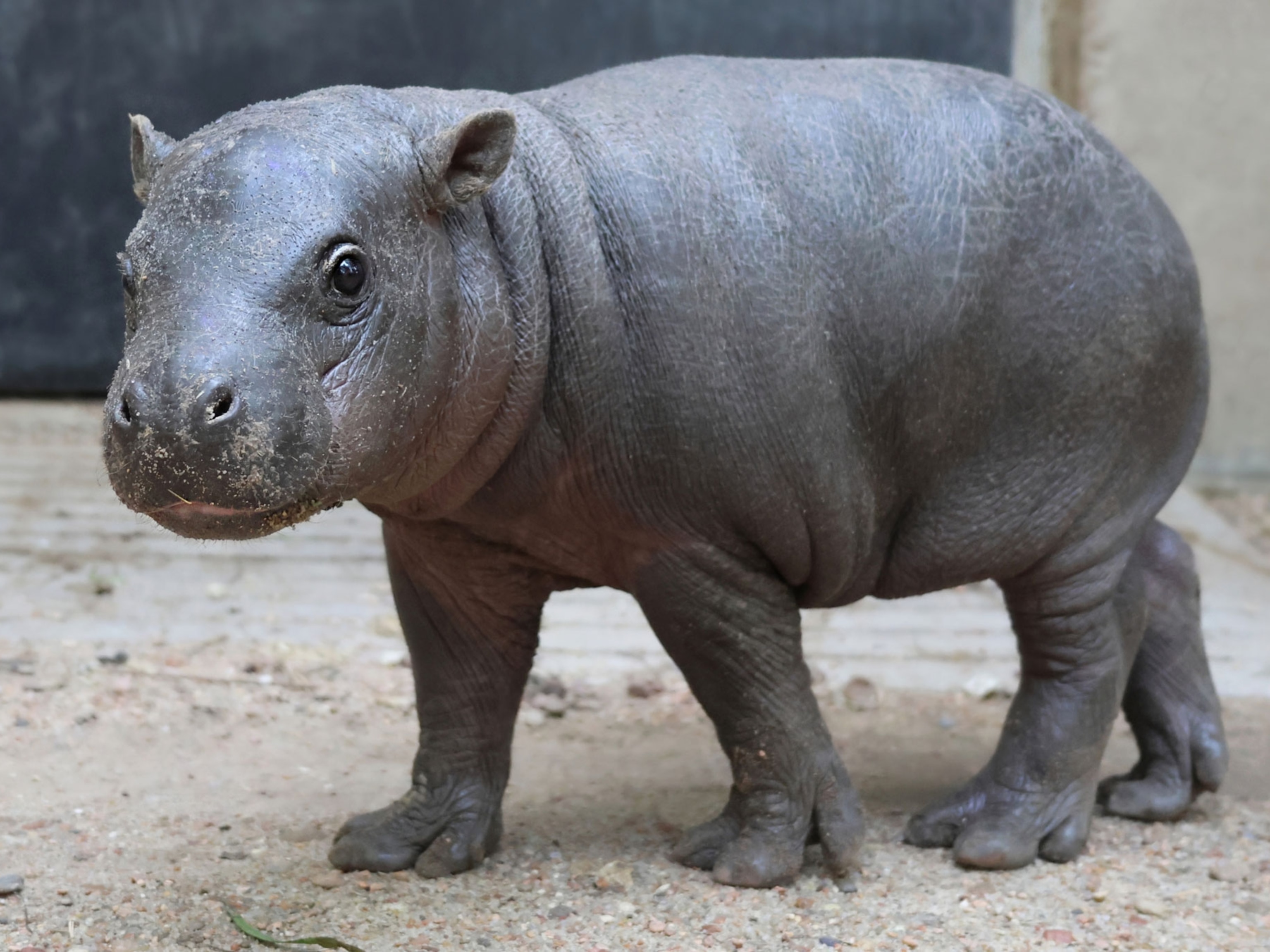Photograph by Will and Matt Burrard-Lucas, Barcroft/Fame Pictures
Pink-Hippo Pictures: Rare Youngster Spotted in Kenya
The young Kenyan hippopotamus has leucism, a condition in which the skin produces less pigment than usual, a scientist says.
Published September 29, 2010









